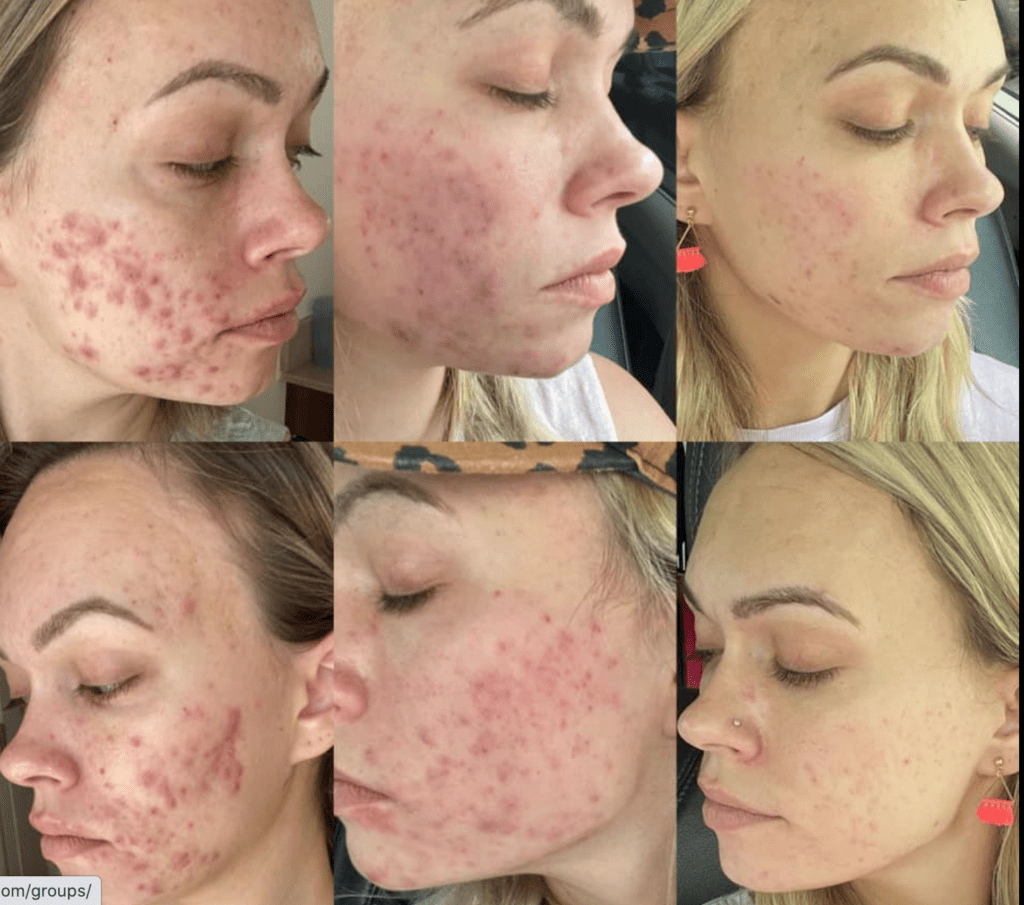Why Women Over 30 Should Start Taking Collagen Supplements
Warning: Undefined array key "file" in /var/www/wp-includes/media.php on line 1768
If you’re a woman over the age of 30, you will no doubt have heard about collagen supplements. You may even live by the motto ‘prevention is better than cure’ when it comes to the aging process and are already considering introducing a collagen supplement into your diet. But did you know the benefits of collagen supplements go far beyond just reversing skin aging? Let’s look a bit further into why, when you graciously spring into the vibrant girl era of your 30’s, you should you consider introducing collagen dietary supplements.
What does collagen do?
Collagen is a protein that naturally occurs in our skin and other parts of the body. It helps to keep our skin strong and supple, while also providing structure to various connective tissue in the body, including our skin, bones and joints. As we age, our body’s natural ability to produce collagen begins to decline. This can lead to wrinkles, loss of skin elasticity, joint aches and pains, and a variety of other age-related issues.
By taking collagen supplements on a daily basis (you can choose between collagen peptides, powdered collagen, or liquid collagen like liquid biocell), you can replenish your body’s natural collagen stores and prevent a decline in collagen production. As a result, it helps to progressively slow down the signs of agin, keeping your skin looking young and healthy, ease joint and osteoarthritis symptoms and providing structure and nourishment to your bones and joints.
What are the health benefits of collagen?
Collagen supplements are particularly beneficial for women over 30 as this is when the bodies natural production of collagen starts to slow down and the depletion of collagen in our bodies begins to happen.
Collagen supplements are a great way to boost your body’s natural collagen production and help support healthy aging. By taking supplements, you can help to reverse this by replacing the vital building blocks of our body allowing the body to heal better, repair and rejuvenate to enjoy healthier skin, stronger bones, and more energy as you age.
The reasons you need to take collagen supplementation
Collagen helps to promote healthy cell growth, reduce inflammation, and increase energy levels – all of which are essential for staying healthy as you age. For starters, they can help to reduce wrinkles and fine lines that start to appear in many women in their 30s, as well as improve the skins firmness. If you have suffered from acne scarring in your teenage years or 20s collagen can help with the signs of acne scarring by smoothing out the skin tone and texture.

Collagen supplements can also be beneficial for your bones and joints. It helps to keep them strong and healthy, keeping you feeling fit and suffering with less joint pain.
Key considerations for women over 30 taking collagen supplements
When we’re in our 20’s and young and relatively care free, the production of collagen is the last thing on our minds – but it’s in our 20’s our collagen production peaks and as we get older it begins to slow down so having the knowledge of how you can build up your collagen stores can help to fight off the early signs of aging and improve skin elasticity.
And why should I really care about this you ask?
If you’re wanting to slow down this process, collagen supplements might be just what you need to add to your diet. As collagen starts to deplete our skin becomes more dehydrated, and thinner which is when we start to notice those pesky fine lines appearing. Our hair can also become thinner, and it can affect our bones and cartilage as well as our gut health too. As Collagen provides essential nutrients that contribute to hair and nail strength and growth, taking a supplement can just be what our body needs to keep that youthful skin glow and thicker healthier hair and nails.

For some woman, peri-menopause the transitional phase in a woman’s life that occurs before menopause can begin as early as their 30’s. It’s when hormonal fluctuations and changes in the body occur. Estrogen levels can drop which plays a role in maintaining bone density and osteoarthritis symptoms start.
Hormonal changes during peri-menopause can sometimes affect digestive health, and collagen supplementation can help support a healthy gut lining. Collagen contains specific amino acids, such as glycine and proline, which can support gut health by helping to maintain the integrity of the gut lining.
So if you’re wanting to slow down this process, collagen supplements might be just what you need to add to your diet. Collagen supplements can be beneficial for those who suffer from digestive issues. Collagen helps strengthen the digestive tract lining and reduce inflammation in the gastrointestinal tract. Taking a daily collagen supplement may help improve digestion and reduce symptoms of IBS, Crohn’s disease, and other digestive disorders.
They’re an easy and convenient way to give your body the nourishment it needs to maintain your optimum health. The best way to do it, is make taking them part of your daily glow-up routine today – your future body will thank you!
There are also other lifestyle changes you can make to help your body stay healthy as you age. Eating a balanced diet full of fruits and vegetables is key, as these foods contain essential nutrients that your body needs for optimal health. Regular exercise is also important – try to take part in activities like walking, running, and swimming on a regular basis.

And don’t forget to get plenty of rest each night – your body needs time to repair itself while you sleep.
In addition to collagen supplements, there are a variety of other things you can do to help stay healthy as you age.
Alternative ways to increase your collagen levels
If supplements are not your thing and you want to opt for introducing collagen solely through your diet, here are some suggestions on how you could do it:
- Bone Broth: If you are not a vegetarian, then this is an option for you – bone broth is a nutritious option that naturally contains collagen. It’s made by simmering animal bones (such as chicken, beef, or fish) for an extended period, which releases collagen and other beneficial compounds. You can use bone broth as a base for soups, stews, sauces, or simply drink it on its own.
- Collagen-Enhanced Foods: Some food products are enriched with collagen to provide an additional source of this protein. Look for collagen-fortified snacks, bars, and beverages at health food stores or online.
- Collagen-Rich Foods: While not as concentrated as supplements or fortified products, certain foods naturally contain collagen or nutrients that support collagen production. Incorporate the following foods into your diet: Eating a balanced diet
- Lean Protein: Chicken, turkey, lean beef, and fish are sources of amino acids that can support collagen production.
- Eggs: Eggs contain amino acids necessary for collagen synthesis.
- Dairy Products: Dairy products like yogurt and cheese provide amino acids that support collagen production.
- Citrus Fruits: Citrus fruits like oranges, strawberries, and kiwi are high in vitamin C, which is essential for collagen synthesis.
- Leafy Greens: Spinach, kale, and other leafy greens provide nutrients like vitamin A and antioxidants that support skin health.
- Bell Peppers: Bell peppers are rich in vitamin C and antioxidants that contribute to collagen production.
- Smoothies: Add collagen rich foods to your favourite smoothie recipe for an easy way to incorporate it into your diet. You can combine it with fruits, vegetables, protein sources, and liquid (water, milk, or a dairy-free alternative).
- Homemade Recipes: Get creative in the kitchen by incorporating collagen rich foods into homemade recipes.

While collagen supplements can offer convenience, a balanced and nutrient-rich diet is the foundation for overall health.
Taking it to the Next Level – with collagen supplementation
Women over 30 have different health needs than those of younger women, so it’s important to keep these in mind when starting a regimen of collagen supplements. Always talk to your doctor about any potential side effects or risks before beginning any new supplement routine. With their guidance and advice, you can make the best decisions for your health.
Choosing a collagen supplement thats right for you
Now that you know why collagen supplements are so important, it’s time to start looking for the right option for your needs. There are various collagen products on the market, which can make the choice very overwhelming, from choosing whether to opt for collagen peptides, liquid collagen or for a powdered collagen – the decision comes down to how you like to consume your supplements. It’s really important you do your research into which collagen is right for you – as with anything there are different quality products, and you want to chose one which has a high bioavailability and bioactivity, allowing the body to effectively absorb and utilise the ingredients.
It’s also worth choosing a supplement that contains other ingredients like Hyaluronic Acid and a mixture of Vitamins that help prevent skin aging.
Wrapping it up
Taking care of yourself is always worth it, it’s a form of self love and prioritising your health is one thing you will never regret doing.
No matter your age, it’s never too late to start taking collagen supplements. By taking care of your body now, you can enjoy the benefits of healthy aging for years to come. Don’t forget that combining a balanced diet with regular exercise and collagen supplements will help you stay fit and strong for years to come. Start the journey towards healthier aging today – your body will thank you!

Frequently asked questions
How much collagen should I take in my 30s?
A 2.5 to 15-gram daily dose of collagen is considered safe and effective. The amount you should take depends on the particular supplement and why you’re taking it.
Can you reverse wrinkles in your 30s?
Your 30s are a time when you may want to start using products that target wrinkles and fine lines. Be sure to use a gentle cleanser, moisturiser, and eye cream, as well as an anti-aging serum or night cream to complement your supplement intake.
Is it Ok to take collagen everyday?
Research shows that taking 2.5 to 15 grams daily of collagen is safe. A smaller dose benefits your joints and skin, while a larger amount may help with body composition and muscle mass.






